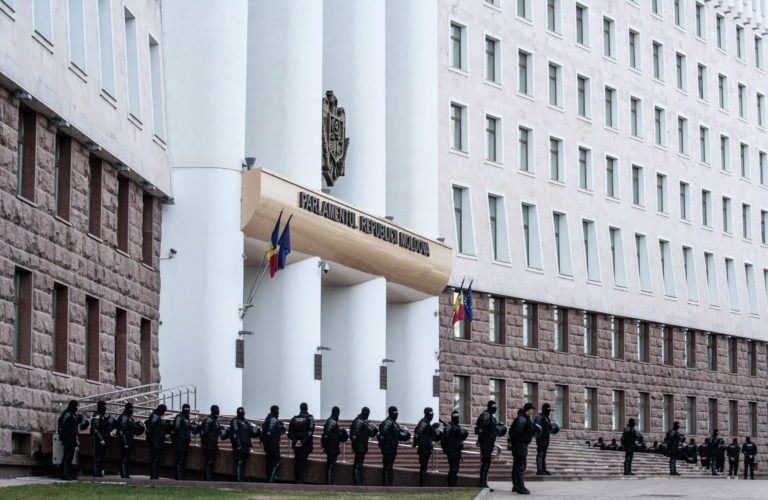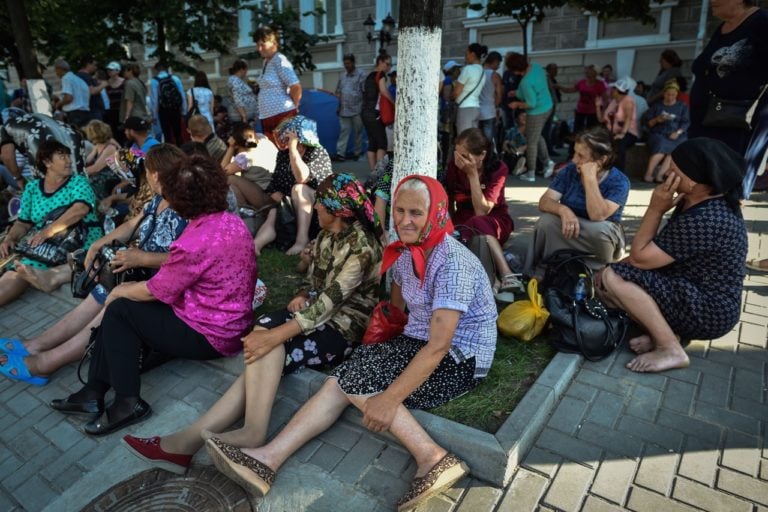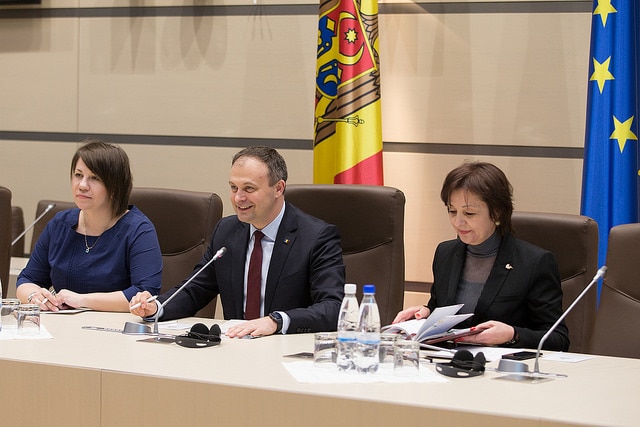SEEMO/IPI disappointed by the decision of Moldovan authorities to stop free movement of journalists and calls for an investigation into several press freedom violations on 9 and 10 April.
(IPI/IFEX) – The following is a press release by the South East Europe Media Organisation (SEEMO), an IPI affiliate:
SEEMO/IPI disappointed by the decision of Moldovan authorities to stop free movement of journalists and calls for an investigation into several press freedom violations on 9 and 10 April
Vienna, 10 April 2009
The Vienna based South East Europe Media Organisation (SEEMO), an affiliate of the International Press Institute, is disappointed to learn that, on 7 April 2009, a group of journalists from Jurnalul National, Evenimentul Zilei, Ziua, Realitatea TV, Associated Press, EPA, France Press, Intact Images, NewsIn, Mediafax and Reuters, who were travelling from Romania to report from Chisinau, were stopped by the Moldovan authorities at the border and could not enter Moldova.
Moldovan officials requested various documents from the journalists, such as invitations, special healthcare insurance and accreditations from the Moldovan government. Some of the journalists were not given any explanation as to why they could not enter Moldova.
SEEMO also supports the local journalists associations in Moldova and Romania, such as the Independent Journalism Center, the Association of Independent Press, the Investigative Journalism Center, the Acces-info Center, the Young Journalist Center of Moldova, the Union of Journalists of Moldova, the Broadcast Media Association and the Federation of Romanian Journalists (MediaSind), who have protested against the steps against press freedom taken by the authorities in Chisinau.
According to the SEEMO Secretary General Oliver Vujovic, this is a clear restriction of the free movement of journalists. “I call on the Moldovan authorities to respect the right to free movement of individuals and journalists, as well as freedom of expression and reporting. Asking for an accreditation or other documents from journalists at the border was against the rules, knowing that foreign journalists need accreditation only if they wish to be accredited as permanent correspondents in Moldova or to have access to official state institutions and representatives,” Vujovic added. Vujovic finally said, “As I know, EU citizens need only their passport to enter Moldova, and I am asking the authorities in Moldova for a prompt investigation of these cases of restriction of press freedom.”
SEEMO is also worried about attacks against journalists that happened on 9 and 10 April 2009. Constantin Rogodantev, a cameraman for the TV station Pro TV, from Chisinau, was assaulted on the night of 9 April by police forces protecting the headquarters of the Moldovan government. As Pro TV reported, two police officers hit Rogodantev and forced him to hand over his tape. Also, on the same night, journalist Yevgenyia Kironaki, cameraman Mihai Valentin Buzduga and driver Gabriel Colac, of the Romanian TV station Realitatea TV, were detained by the Moldovan police and released a few hours later. They left for Romania.
SEEMO is also alarmed about the kidnapping of Rodica Mahu, editor-in-chief of the Jurnal de Chisinau daily newspaper, on 10 April 2009. She was reporting for her newspaper and was kidnapped in front of the Government building by four unknown civilians. She was interrogated by the police and released after two hours. Finally, SEEMO is alarmed about the case of Doru Dendiu, of the Romanian TVR. He was reporting from Moldova for TVR on the morning of 10 April when the police came and asked him to stop his work. After that, TVR was unable to make contact with Dendiu.
Oliver Vujovic urges the police and authorities of Moldova to identify and punish the officers involved in all of these incidents.


